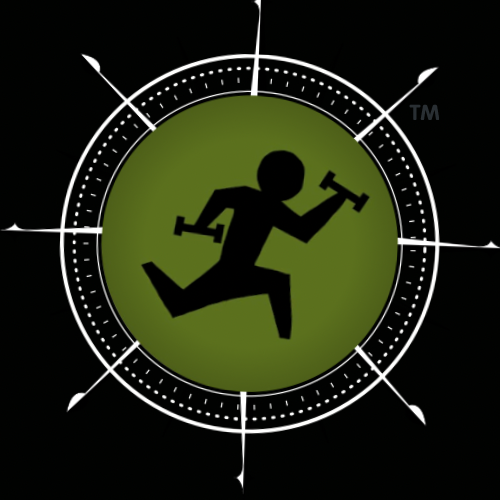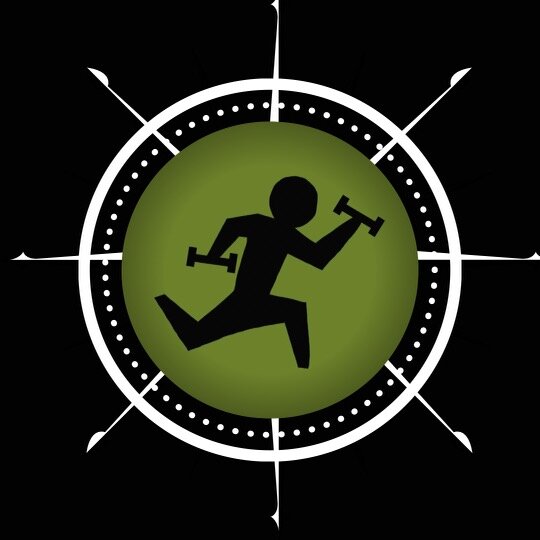Building Muscle FAST - A Beginner’s Guide
What brought every person who is reading this is 1 thing: “how do I get the results I want?”
My name is Dave Marchand and I own a mobile personal training company called The Traveling Trainer. We train clients in northeastern Massachusetts communities such as Westford, Concord, Lexington, Burlington and many, many others. I have been coaching for over 10 years, from athletes to the average joe, and also those with disabilities. Within all of my years in coaching it has become clear that there are only a few SIMPLE things to perform in order to achieve success, but not always easy. Note that I said SIMPLE, because I am not going to blow your mind here. Let’s get into it.
Step 1: Nutrition
Nutrition is a large majority of this equation. You often have heard the saying “you are what you eat”, and that is 100% the case. When we are starting to workout and build our “home” (body), we cannot be building on an unstable surface. The surface that we build on is nutrition; our foundation. We can build up a house as much & as many times as we want, but it will all come crumbling down if we do not have our foundation structurally sound.
Nutrition, in this sense, is focusing on eating whole foods, and paying attention to your macronutrients. Understand that Carbohydrates are used as energy, and we should fuel ourselves with only the required amounts of energy we need throughout the day, or else the rest will be stored as fat (adipose) tissue. Protein is our muscle-building macronutrient, and our friend. When starting, I typically recommend beginners to try to get 100g of protein daily. As we get more comfortable with this we will want to take in about 1g/lb of lean body weight. Fat is our heaviest macronutrient at 9cal/g. It aids in energy production and hormone regulation. A lot of people fear fat, but you should not. You just have to be mindful that it carries more calories than the other two macronutrients.
If we are looking to build muscle, we want more protein, moderate carbohydrates, and moderate fats. We recommend you discuss this with your coach or nutritionist regarding this to get better numbers. Reality: remove the junk food, stop eating out, and cook your meals. Eat your protein first, then everything else on the plate, and be mindful of what you are taking in.
Step 2: Workout
No matter what your end-result is or wants to be, you need to be weight training. During this time we are stressing our muscles to breakdown muscle tissue, where afterwards we refuel it and recover it with protein, water, and rest. You should aim to workout between 2-5x/week. How you structure your workout is highly dependent on your frequency, medical history, and time. Our coaches here at The Traveling Trainer can discuss with you your best plan of action in a free discovery call if interested.
Step 3: Recovery
You think muscle is just built in the kitchen and weight room? Incorrect, amigo! Imagine our bodies like your cell phone. You would not like to leave it off the charger at night after using it all day, right? Same goes with your body. You need to recover. Sleep is paramount to not only your physical health but also your mental health. Along with this, if muscles are too sore to train, skip those. You can hit them another time and believe me, they will still grow. Other practices that go with recovery are nutrition, hydration, and active recovery. We recommend our clients drink water and are well-hydrated if their urine is relatively clear. Active recovery methods include walking, hiking, playing low-contact sports, and more!
IMPORTANT THINGS TO CONSIDER:
This takes time. If you are overweight, that did not happen overnight. Neither will your results. Respect the fact that this is going to become a part of your lifestyle, and that you will come out of this stronger both physically and mentally. The benefits from strength training are not just aesthetics, but also increases in memory, focus, happiness, and better sleep (if you struggle with sleep, this is for you!).
Track your progress. Whether that is through a custom program that you track your weights, or progress photos, you will want to gather data. If you use the scale, please just use this as a means of collecting info on your progress. We recommend gathering 7-days worth of weigh-ins and taking the average to measure a weight increase or decrease. Then adjust calories as needed. Your relationship with the scale should never be negative if we use it just as a means to gather more data for your success. A 100lb person with 10% body fat is much different than a 100lb person with 40% body fat.
MISTAKES TO AVOID:
Do not have cheat DAYS. It is okay to have a cheat meal every once in a while. When we have cheat DAYS, though, that is adding up tons of calories into 1-24 hour day. This will stun progress easily and will have you scratching your head senseless thinking it is just 1 day. That 1 day can throw off a whole week, so be wise. Cheat meal, not cheat day.
Soreness does not equal progress. It does mean you have worked the tissue out well, yes; but do not think you need to always be sore.
Do not skip your warm up. This will definitely come to haunt you in the long run if you choose to do so. It may not be today, but from my past mistakes when I was a kid, my shoulder hurts daily ;).
Do not follow cookie-cutter programs. Anything designed online from Bodybuilding.com to Muscle and Fitness is not designed with each person's mobility limitations and injuries in mind. You should be properly assessed by a coach to help deliver a personalized program to suit your goals and needs!

